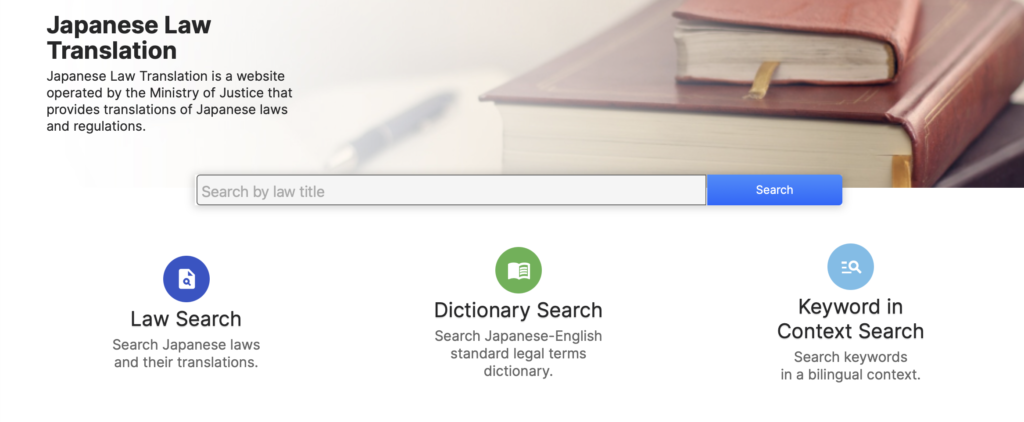
Foreign-owned companies starting up or establishing Japanese branches in Japan, and of course, those non-Japanese companies already operating here must adhere to local labor and social welfare laws. Useful English Resources On Japan’s Employment Matters for Foreign Companies
The sources of recent news and information from the Ministry of Health, Labour and Welfare (MHLW) website are mostly in Japanese. If there are English materials on specific laws, topics, updates, etc, Verse endeavors to provide them in this blog. Again, the Ministry offers an English MHLW site that provides some important basic information.
*Notes Regarding English Translations provided by the MHLW
- Fine Print. As noted by the MHLW, such translations, while helpful, are not precise. Details are in the “Fine Print” note at the end of the article.
- Japanese company and staff registrations, and ongoing reporting procedures relating to all matters of employment law can be complex, even for Japanese companies, and must of course be handled in Japanese. As with all social welfare and labor law matters in Japan, please seek out professional Sharoushi support to ensure you and your company remain in compliance.
Verse Corporation publishes articles on timely issues in Japanese Social Welfare and Labour Law.
Two Helpful MHLW English Resources in Japan: Again, Beware of the limitations in relying on translated materials.
1. The MHWL English (and other foreign languages) Beta Website
2. Japanese Law English Translation Website
1. The MHWL English (and other foreign languages) Beta Website

The MHWL English Beta Website First, available on the Beta English site, the MHWL’s fundamental English materials cover these areas: COVID-19, Health Matters, Social Welfare, Labor and Statistics.
All of these are important for companies operating in Japan and who have concern for their employees. In particular, the Welfare and Labor resources must be carefully monitored. Below we provide the full listing as available on the Ministry’s website.
WELFARE
Childcare / Caregiver
・Maternal and Child Health Handbook
・Outline of the Act on Childcare Leave/Caregiver Leave (English) / (Chinese) (Portuguese) (Vietnamese)
Person with Disabilities
・Assistance Dogs for Persons with Physical Disabilities
Pension
・Sustainable and reliable pension system
・Japan Pension Service International
Government Relief
・Support on Work and Daily Life/しごとやせいかつのしえん(やさしいにほんご)
LABOUR
For Foreign Workers
・Counseling Services and Hotlines in Foreign Languages
・Brochure about Industrial Accident Compensation Insurance
・Equal Employment Opportunity Act (English) (Vietnamese) (Portuguese) (Chinese)
・Inconsistencies in treatment between company workers and part time/fixed term workers is strictly prohibited (English) (Chinese) (Portuguese) (Vietnamese)
・Conflict Resolution Support System and/or Legal Arbitration (English) (Chinese) (Portuguese) (Vietnamese) (Spanish) (Korean)
・Support on Work and Daily Life/しごとやせいかつのしえん(やさしいにほんご)
For Technical Intern Trainees
・Organization for Technical Intern Training
・Regarding Technical Intern Training
2. The Japanese Law Translation Website
The Japanese Law Translation is a website operated by the Ministry of Justice that provides translations of Japanese laws and regulations. This is an extremely useful tool allowing English readers to research, read and gain an understanding of Japanese law, in any area, assuming that a translation has been made.
Important Fine Print: These are not official texts, and Verse cautions all readers that these are not official texts and they cannot be relied upon as they may not be accurate. As always, it is important that the original laws, rules and information circulars provided by the government, in Japanese, be your source. Seek out Japanese Sharoushi, such as Verse or others to ensure you are in full understanding and compliance.
FYI, the website states as follows:
The translations contained in the Japanese Law Translation Database System are not official texts, and not all of the translations are finalized versions. Only the original Japanese texts of the laws and regulations have legal effect, and the translations are to be used solely as reference materials to aid in the understanding of Japanese laws and regulations. The government of Japan is not responsible for the accuracy, reliability or currency of the legislative material provided in this website, or for any consequence resulting from use of the information in this website. For all purposes of interpreting and applying law to any legal issue or dispute, users should consult the original Japanese texts published in the Official Gazette.

